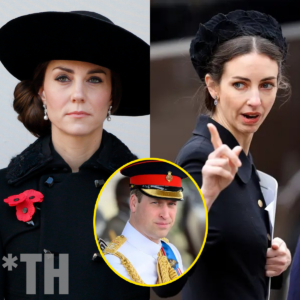Global megastars ABBA topped the charts after winning Eurovision but fans will see a new side to the quartet in a brand new documentary using archived footage
In the 50 years since winning Eurovision, Abba have sold 385 million records but a new documentary lays bare their heartache as they struggled to get the recognition they deserved.
The musical establishment sneered at their frothy pop songs, the programme shows. It also tells how their quest to break America nearly broke them all and how they struggled as both of their marriages fell apart. Plus Agnetha and Bjorn were agonised at leaving their young daughter Linda behind for weeks on end as they toured.
In the film, which uses archive interviews from TV stations across Europe, viewers see how winning 1974’s Eurovision in Brighton was their ticket to global fame. But it also gave them a cheesy image they found impossible to shake. “In England, they thought it was quite beige,” Benny says.
“Even if the song was No1 in England if you’re a part of Eurovision, you’re dead afterwards.” But they didn’t give up, instead trying hard to find their identity in the wake of Eurovision-winning song Waterloo. Bjorn gives credit to their manager Stig Anderson, saying: “He always said ‘One day you’ll write a world hit’. “That meant a lot.” Mamma Mia was the song that turned things around.
ABBA dominated the music industry after appearing on Eurovision (
Image:
BBC)
Bjorn says: “With Mamma Mia we found we were a pop group. We found our identity.” He also says he and Benny were in awe of Agnetha and Frida’s voices, explaining: “Even if they sang very sad songs, they sound somehow jubilant.” But the press and musical establishment remained dismissive, with Swedish journalist Leif Schulman remembering: “You couldn’t be open about liking Abba.”
In 1975 Frida said she felt “very overwhelmed” by the criticism while Agnetha described the experience as “quite unpleasant”. In Australia however, they were hugely popular with songs like Fernando and during 1975-76 found themselves at the top of the charts for 42 weeks.
Promoted Stories
The song Knowing Me Knowing You meant that the UK could no longer be so dismissive of their skills. While still being dismissed as “simple and naive” they came up with 1976 global hit Dancing Queen, which Agnetha says gave her and Frida goosebumps as they recorded it.
Mamma Mia changed their lives (
Image:
BBC/Rogan Productions/Alamy)
But in other ways the cracks were already starting to show. In an interview Bjorn confesses that being in a band with his wife wasn’t always an easy ride. “Having to be together all the time can cause problems,” he admits. He and Agnetha had had a baby girl the year before Eurovision in 1973, and it was becoming hard to leave her behind in Sweden while they went away on tour.
“Everything happened at the same time,” Agnetha says in the film. Agnetha also says the endless speculation that she and Frida didn’t get on was untrue and hurtful. “So much has been written that Frida and I were not friends, it’s not very fair to do that,” she says. In 1978 Benny and Frida finally tied the knot after an engagement of more than seven years but Agnetha and Bjorn’s marriage was failing, despite the birth of their second child.
Agnetha says she became physically ill during her time in the band (
Image:
BBC/Rogan Productions/Alamy)Don’t Miss
ITV News host Rageh Omaar falls ill live on air in ‘disturbing’ scenes as medics step in
ITV Coronation Street fans ‘work out’ Rowan’s real plan for Leanne after recording twist
BBC The One Show hit with complaints just minutes in as fans left completely divided
ITV This Morning’s Cat Deeley’s four word response to bloke with Britain’s biggest penis
Bjorn says: “The marriage didn’t work. But we still worked very well together… so we decided to split up the marriage but not split up the band.” Agnetha says she thinks the decision was “very brave of us”. Another attempt to crack the US in 1978 ended with a terrifying flight in bad weather, which shook Agnetha so badly she became physically ill.
“After that, I got sick,” she says. “I said ‘I can’t do this’.” With Benny also finding that the touring sapped his ability to feel creative and write songs, Bjorn said it was time to give up on trying to be as popular in the US as they were in the rest of the world. Back in the UK, they were welcomed with open arms and the band finally started to feel the love.
When Abba kicked off a run of 38 concerts at Wembley, there was a clamour to get hold of tickets. Bjorn says their confidence grew. “I ran into Pete Townshend,” he recalls. “He said ‘do you know SOS is the best pop song ever written?’ I was so proud.” In 1980 they drew even more acclaim for The Winner Takes It All, which became one of the most celebrated break-up songs of all time.
Bjorn hints they put their own emotions into it and Agnetha says: “I tried to put my life experience and my feelings, everything in the song.” By the time Super Trouper came along later in 1980, to huge acclaim, they were being asked more about their difficult path to superstardom.
One interviewer asked: “You must be rich but are you happy?” and Frida admitted: “Sometimes, sometimes not.” But when it comes to being in the band, they drew strength from each other. Frida poignantly sums up their decade of domination, saying: “It wasn’t just the music, it was also love.
“It was a life lived together, somehow, all four of us.”
Abba: Against the Odds, BBC1, Saturday 4 May
Hot news:
Hot news:
News
Thomas Markle ‘so sad’ he won’t join Prince Harry and Meghan Markle for special occasion
Thomas Markle has been estranged from his youngest daughter Meghan Markle since shortly after her wedding to Prince Harry in 2018. Thomas Markle has never met neither…
Rose Hanbury breaks silence to answer allegations over Prince William affair
There have been an untold number of well-publicized royal scandals over the years, many points in history where the ongoings of the British monarchy have dominated newspaper…
Netflix CEO Snubs Sussexes’ $100 Million Deal: Meghan Markle Faces Rejection from Streaming Giants
SO, BACK IN 2020, MEGXIT HAPPENED. HARRY AND MEGHAN DECIDED TO STEP BACK FROM ROYAL DUTIES, CITING PRIVACY CONCERNS AND A DESIRE FOR INDEPEN… So, back in…
Man Claiming to Be King Charles & Queen Camilla’s Son Speaks Out on DNA Test — Details & His Photos
An Australian’s quest for royal recognition takes a dramatic turn, with a plan to compare DNA with a royal family member at the center. Amidst a backdrop…
Prince Harry and Meghan Markle reportedly face their titles being STRIPPED with the Royal Family’s silent approval
The Palace has be warned that a potential move could spark backlash from the public if it’s given the go ahead. A royal expert has claimed that…
Meghan Markle thinks Prince Harry is making ‘big mistake’ by reaching out to Princess Kate
Meghan Markle is reportedly worried about Prince Harry attempting to reunite with his sister-in-law, Princess Kate, following the news of her cancer diagnosis, as he prepares for…
End of content
No more pages to load










